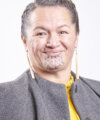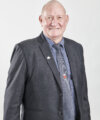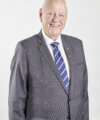
Just seven of 30 politicians who responded to a Good Local Media poll said they were comfortable with a three-year term for councils.
Twenty thought going to four years was a better option, three were undecided.
And among those 10 not convinced, some indicated they could be persuaded to change their mind.
The exclusive survey drew a 100 per cent response from local body politicians in Waipā plus the two covering the Tamahere-Woodlands ward and the mayor of the Waikato District and Waipā-King Country constituency councillors for the Waikato Regional Council and the chair.
- Angela Holt – Four
- Andrew Myers
- Philip Coles – Four
- Jo Davies-Colley – Three
- Bruce Thomas – Four
- Clyde Graf
“In my experience I have found we just get going and there is an election,” Te Awamutu and Kihikihi Community Board chair Ange Holt said.
But Cambridge Community Board chair Jo Davies-Colley was among those happy with a three-year term, saying it gave elected members enough time to have an impact on their community “and see some of their strategies and goals hopefully come to fruition”.
Cambridge board member Andrew Myers thought three-year terms amounted to a “massive waste of public money” while Waipā councillor Philip Coles was on the same page saying reducing the frequency would save ratepayers’ money.
“66% of a three-year term can be poorly utilised – the first year for people to get bedded in and learn the ropes, one year in the middle to be of effect, and a final year to win an election,” said Myers.
“(That) money could be spent on other projects that could benefit the community better,” said Coles.
Pirongia ward’s Bruce Thomas liked four years but… “no longer, as I see difficulty in governance if a majority of the wrong element can have an influence…”
Regional councillor Clyde Graf was on the same page – “four years may be okay, but that’s the limit. The likelihood of cronyism and corruption increases with the length of the term”.
- Crystal Beavis
- Mike Keir
- Dale-Maree Morgan
- Marcus Gower – Four
- Andrew Brown
- Susan O’Regan – Four
Waikato district councillors in the Tamahere-Woodlands ward, Mike Keir and Crystal Beavis, favoured four.
And Beavis said there was no point changing the term for local government without also changing the term for Parliament.
“Three years does not allow enough time for effective government at either local or national level.”
Waipā district Māori ward councillor Dale-Maree Morgan understood the issue had been discussed and “council has always supported calls for an extension for the term from three to four years”.
“A longer term will help with the effectiveness of planning, implementing and actually getting things done for our people and communities.”
Waipā’s Marcus Gower also believed the three-year term was “too short to get any big projects underway”.
His colleague Andrew Brown said four years allowed a decent period to get things done “but not too long before voters can have their say”.
- Pamela Storey – Four
- Stu Kneebone
- Clare St Pierre – Three
- LIz Stolwyk – Four
- Mike Pettit
- Lou Brown – Four
Regional Council chair Pamela Storey, Waipā mayor Susan O’Regan and Waikato mayor Jacqui Churc, all four-year term supporters, agreed that the longer term would enable better planning.
Waikato regional councillor Stu Kneebone was happy with three but acknowledged “there are always plusses and minuses”.
Happy at three was Pirongia’s Clare St Pierre – “for me, three years is already a long time personally to commit to a public role that isn’t well remunerated while calling for quite a sacrifice at a personal level”.
Of the Waipā district councillors Andrew Brown, Bruce Thomas, Dale-Maree Morgan, Liz Stolwyk, Lou Brown, Marcus Gower, Mike Pettit, Philip Coles, Roger Gordon and Susan O’Regan backed four years, Clare St Pierre and Mike Montgomerie liked three, Roger Gordon was undecided.
- Mike Montgomerie
- Roger Gordon – Four
- Sally Whitaker – Unsure
- John Wood – Four
- Kane Titchener – Three
- Jill Taylor – Three
The Te Awamutu-Kihikihi board’s five elected members were divided two four, two against and in the case of Sally Whitaker, on the fence. Ange Holt and John Wood liked four, Kane Titchener and Jill Taylor three.
Cambridge’s community board was the same – two opted for four – Alana Mackay and Andrew Myers, Sue Milner was undecided and two supported three – Jo-Davis-Colley and Elise Badger.
Taupō MP Louis Upston almost had a bob each way. She was happy with three-year terms but opened by saying “there will be a variety of views around a four-year term, and it’s something I’m open to”. Her Taranaki-King Country colleague Barbara Kuriger was “open to a four-year term” – but no longer.
Gordon looked at a bigger picture.
“The turnout of voters, the participation in consultation exercises, the representative reflection around the council table, and even in some degree the picture painted by the recent satisfaction survey, are suggesting that the current system is not fit for purpose, a little broken. We need to concentrate on that challenge.”
- Alana MacKay – Four
- Sue Milner – Unsure
- Elise Badger – Four
- Barbara Kuriger
- Louise Upston
- Jacqui Church – Four
Read the responses







































